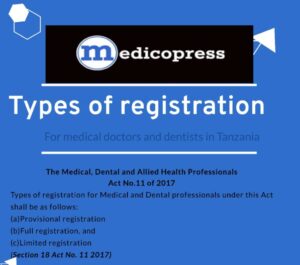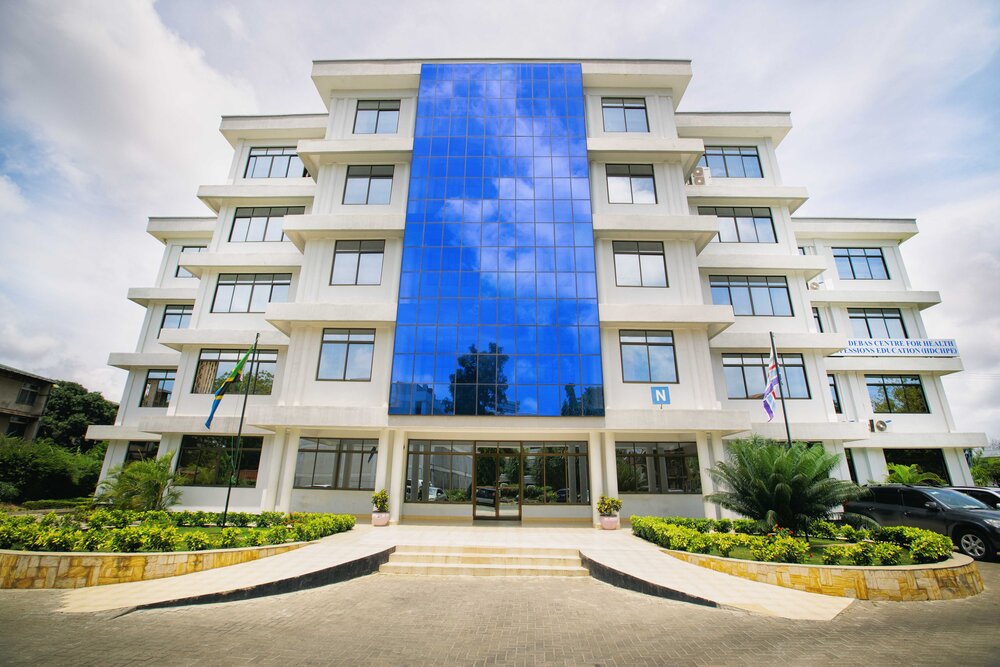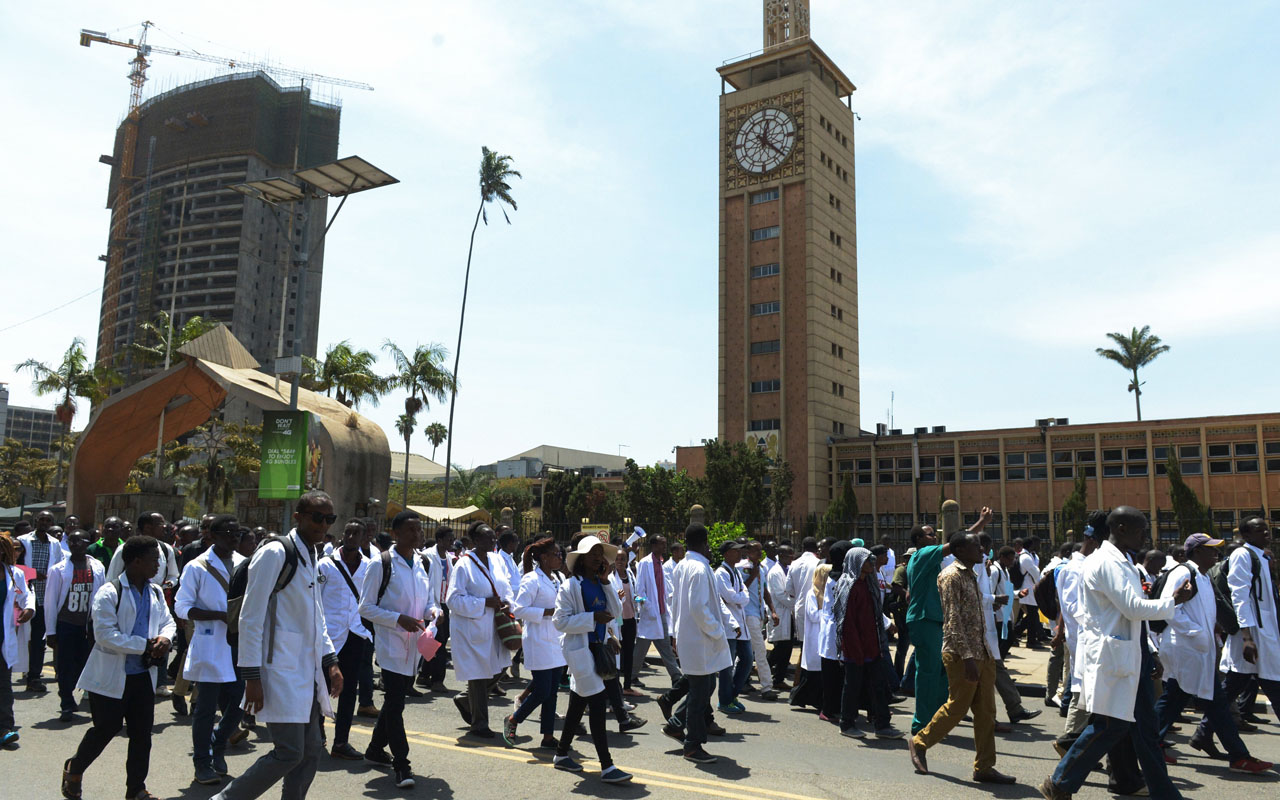For the first time in Tanzania, graduates of medicine and dentistry who are being posted for a one year internship programme at various hospitals across the country, will have to sit for post-internship examinations before qualifying for full registration.
The development comes two years since the enactment of the Medical, Dental and Allied Health Professionals Act No. 11, 2017 which spells out new criteria for registration of all medical doctors and dentists in Tanzania. The new Act repealed the Medical and Dental Practitioners Act (Cap 152), 1959, which was found to be outdated.
The Registrar of the Medical Council of Tanganyika (MCT) Dr David Mzava told MedicoPRESS that the exams are a fulfilment of registration requirements in accordance with the new Act. This is also part of the ongoing reforms in the country’s health professionals’ regulatory frameworks.
“We will effectively start implementing part of the Act by conducting post- internship examinations for this batch of interns who have been posted this year,’’ said Dr Mzava, signalling a fresh start in the implementation of the new law.
He said the examinations, to be administered by the council, will give room for doctors who have completed their internship programmes to further meet the criteria for licensing and renewal after undergoing Continuing Professional Development (CPD).
Doctors who don’t intend to practice will be able to retain their names in the register, according to the new law. “… [they] shall retain their names in the register, roll or list as the case may be, through annual renewal,’’ reads Section 60 (1) of the Act.
In the coming years, when the new registration system finally takes shape, a practitioner who intends to renew his or her practising licence, shall have to prove that he/she has undergone CPD.
In Tanzania’s health sector, CPD, which involves enhancing knowledge, skills and work experience after formal training, is guided by the National CPD Framework of 2016 for healthcare workers under the Ministry of Health, Community Development, Gender, Elderly and Children.
No more temporary registration
A notice released October 31 by office of the registrar shows that an intern doctor who completes a one year programme under provisional registration will no longer, thereafter, be required to undergo a two-year temporary registration which was provided for under the repealed law.

In the due course, the MCT is expected to issue details of how the post-internship examinations will be conducted, where they will take place and the grading systems. During the Annual General Meeting (AGM) of the Medical Association of Tanzania (MAT) in Dodoma on November 11 and 12, the MCT Registrar is expected to speak to doctors in details about the new Act.
Tighten controls
MAT said the commencement of post-internship exams marks the beginning for implementation of recommendations made by health professionals’ associations during a process to form the Medical, Dental and Allied Health Professionals Act No. 11, 2017.
The President of MAT, Dr Elisha Osati, told MedicoPRESS that the exams are expected to boost the quality of intern doctors.
“Over the years, concerns have been raised about the declining quality of intern doctors from various intern centres. That’s’ why stakeholders had to include examinations as part of the new Act,” he said.
“There was a good number of intern doctors who were found not to take this programme seriously, yet they all wanted to be registered to practice. Professional bodies, in consultation with all stakeholders agreed that this was indeed a problem and the way to fix it was to tighten controls in the way they are assessed after the one year of internship,” added Dr Osati.
In its October notice, the medical council said it was not ready to provide pre-internship exams. MedicoPRESS is informed that pre-internship exams fall under another arrangement.
“The pre-internship exams, which in fact means the exit exams from universities, this will be taken care of by other stakeholders,” said Dr Osati during an interview on Sunday.
Medical universities in the country are currently working on a benchmark curriculum that will set minimum requirements for graduates, especially those taking medicine and nursing. It is expected to be scaled up among other health cadres.
This, according to stakeholders, is projected to streamline how fresh graduates in the health field are examined before being posted to work stations. Under a 5-year project, dubbed, “Transforming Health Professionals Education in Tanzania (THET), a harmonised curriculum will be introduced to determine graduates’ competencies.
“Each medical university is now using its own training curriculum. That’s why they produce graduates of different competencies,” said Dr Doreen Mloka, the Director of Continuing Education and Professional Development at Muhimbili University of Health and Allied Sciences (Muhas), during the launching of THET in Dar es Salaam early this year.










Similar to many other low- and middle-income countries, public private partnership (PPP) in the training of the health workforce has been emphasized since the launch of the 19’ health sector reforms in Tanzania. PPP in training aims to contribute to addressing the critical shortage of health workforce in these countries. This study aimed to analyse the policy process and experienced outcomes of PPP for the training of doctors in Tanzania two decades after the 19’ health sector reforms. We reviewed documents and interviewed key informants to collect data from training institutions and umbrella organizations that train and employ doctors in both the public and private sectors. We adopted a hybrid thematic approach to analyse the data while guided by the policy analysis framework by Gagnon and Labonté. PPP in training has contributed significantly to the increasing number of graduating doctors in Tanzania. In tandem, undermining of universities’ autonomy and the massive enrolment of medical students unfavourably affect the quality of graduating doctors. Although PPP has proven successful in increasing the number of doctors graduating, unemployment of the graduates and lack of database to inform the training needs and capacity to absorb the graduates have left the country with a health workforce shortage and maldistribution at service delivery points, just as before the introduction of the PPP. This study recommends that Tanzania revisit its PPP approach to ensure the health workforce crisis is addressed in its totality. A comprehensive plan is needed to address issues of training within the framework of PPP by engaging all stakeholders in training and deployment starting from the planning of the number of medical students, and when and how they will be trained while taking into account the quality of the training.
Hello My name is Martha Lukumay I’m currently a fourth year medical student outside my country Tanzania I want to ask by the time I’m graduating around 2020 will there be license exams or how does Tanzania board of university do things for us students to get our license and practice has doctors in Tanzania
Hello Martha, the Medical Council of Tanganyika(MCT) is better positioned to give you clarifications on the issues you asked. We would advise that you contact the registrar for details, through http://www.mct.go.tz/. Thanks for contacting MedicoPRESS and look forward to furthe engagement with you on this platform.
I am Emmanuel Msomba, an intern Doctor at Mbeya Zonal Referral Hospital , its good for us to have post intern exam but the issue is too late announcement for examination almost its one month prior to examination date and until now no venues for exams has prepared for us but venue is not a big deal, the main concern for us interns its very late examination date which make us to have poor preperationd